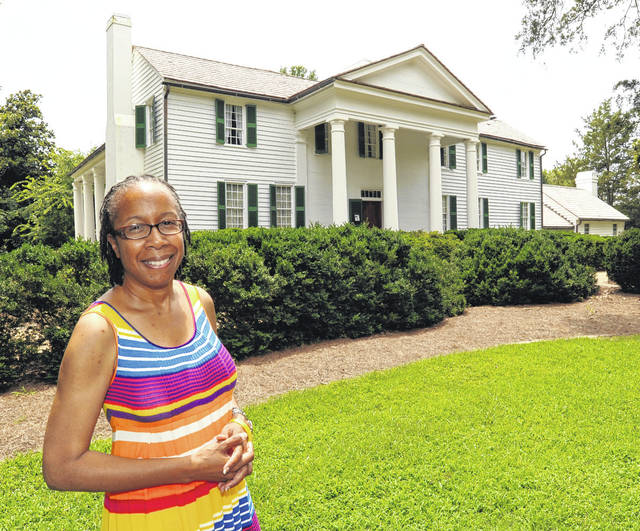PICKENS COUNTY — Rhondda Robinson Thomas, associate professor of English at Clemson University, has received a $50,000 Whiting Public Engagement Fellowship.
Thomas will use the award to broadly share the university’s history through a museum exhibition called “Black Clemson: From Enslavement to Integration,” which will travel to 10 sites across South Carolina over two years. She also will partner with local organizations to create a series of public events that further illuminate the history of Clemson as a town, a university and the land from which both grew.
A scholar specializing in 19th-century African-American literature and culture, Thomas has conducted exhaustive research on the roots of Clemson University and its rise.
The “Black Clemson” traveling exhibition is an extension of her “Call My Name: African Americans in Early Clemson University History” initiative, which has digitized more than 2,000 primary documents related to Clemson history, including slave inventories, prison records, labor contracts, photographs and correspondence. Through her ongoing project, Thomas has shared previously untold history and made it personal by sharing the stories of enslaved people and sharecroppers, and uncovering the identities of convicts who endured forced labor.
“I’m honored to be a member of the cohort of Whiting Public Engagement Fellows for the 2018-19 academic year,” Thomas said. “This fellowship will enable me to increase the visibility and impact of my ‘Black Clemson: From Enslavement to Integration’ traveling museum exhibition project in South Carolina and the nation.
“African-Americans not only played a central role in the development and maintenance of Clemson University, they created vibrant communities in local towns during Reconstruction and the Jim Crow era. ‘Black Clemson’ draws attention to this neglected history of African-Americans in the South Carolina Upstate that is essential for better understanding the stories of black families and John C. Calhoun’s Fort Hill Plantation, black laborers and higher education institutions and black citizens and community building,” she said.
The exhibition, which Thomas designed along with community collaborators, will also cover Clemson students, faculty and staff; institutions such as churches and schools; and even Littlejohn’s Grill, the local nightclub and hotel where James Brown, Ray Charles and The Supremes performed.
Thomas is the author of “Claiming Exodus: A Cultural History of Afro-Atlantic Identity, 1774-1903” and co-editor of “The South Carolina Roots of African American Thought, A Reader.”
She is one of seven individuals to receive the 2018-19 Whiting Public Engagement Fellowship for work in the humanities disciplines of history, literature, philosophy, anthropology and gender studies.
“This award also draws attention to the essential role of the humanities in creating opportunities for the public to examine how race has impacted the American experience as we consider means to address the continued challenges of race relations today,” Thomas said.
In addition to the fellowships, this year the Whiting Foundation awarded planning grants of $5,000 to 10 projects in earlier stages of fruition.
Information about all of the winners and their projects is available at the Whiting Public Engagement website, www.whiting.org.



